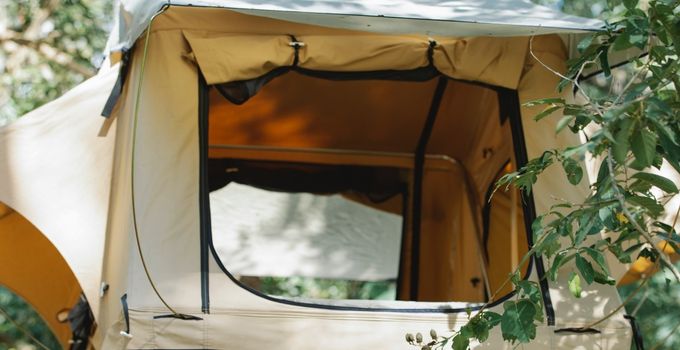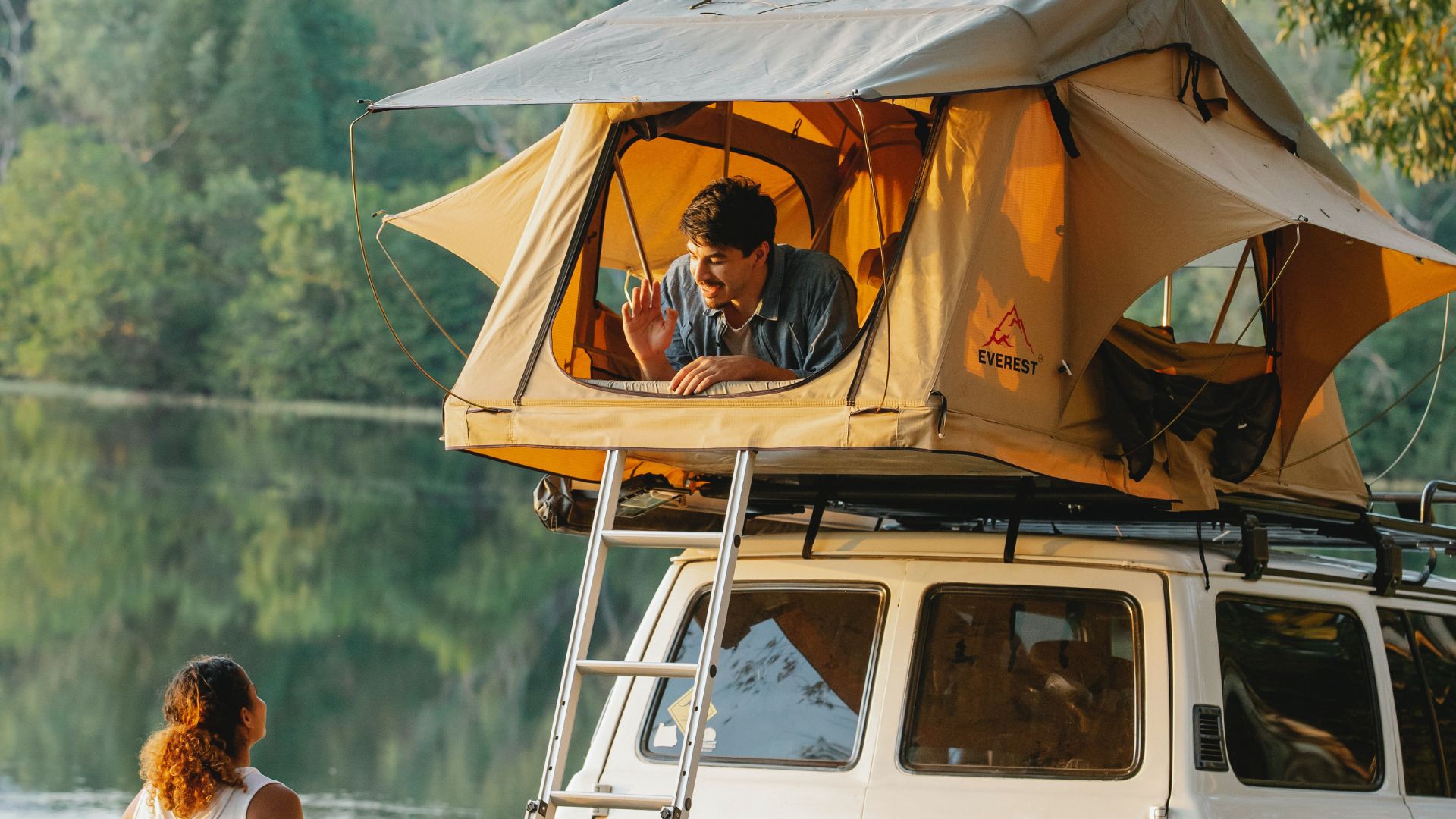Rooftop tents look pretty cool on Instagram. But, at different forums, I have seen people also talking about rooftop tent regrets. There is no definitive answer. Priorities and needs differ for everyone. You can’t deny that they’re comfortable, versatile, and look damn cool too. But they have certain drawbacks as well.
Simply, take advantage of the pros and don’t sweat the cons. If you are going to purchase for the first time, I have listed almost all the regrets one can have about having an RTT, so you can decide accordingly. But, think twice before you purchase another one and think it will cure your rooftop tent regrets.
What fascinates you:
- RTT owners are posting their unrealistic breakdown times of under 60 seconds on their social media. In reality, they take 10-20 minutes. A few hours each day can easily be wasted depending on your exploration style.
- You want to evade everything from lions to poisonous snakes and spiders. Campers in North America, however, seldom face such dangers.
- After proper research, I have listed certain pros and cons to help you make a clear decision.
Rooftop Tents Regrets ( Top 10 Problems that you may face)

1. Cost
A rooftop tent is an expensive purchase. Many of the top camping tents on the market are less than $400, while the cheapest rooftop tent starts at around $1,000. It would be cheaper to buy a used van or get a pickup truck renovated, for that price, or get some seriously high-quality camping gear.
A factory-installed roof cannot bear the weight. You need to install a roof rack from a third party on your vehicle which will add to the cost.
2. Packing and unpacking are difficult
Both installation and removal require at least two people.
Depending on the model of the tent, you may also need clips and bolts —so once you install the tent, you might not want to remove it for a little while.
3. Weight
Extra weight is one of the most discussed rooftop regrets. As the roof tent is carried throughout the journey, its extra weight increases fuel consumption.
Your mileage around town may also be reduced if you drive your closed-up roof tent daily because of packing challenges.
4. Wear and Degradation
Cars that aren’t compatible with rooftop tents can suffer significant wear and tear.
Adding weight to your car stresses its suspension, causing some parts to wear out much more quickly.
Almost all fabrics or hard materials used to construct tents can bleach and wear out due to UV degradation
5. Balance of driving
The added weight can sometimes cause mild corners to destabilize the vehicle to the point of activating the stability control. Your car or truck’s handling will undoubtedly change as a result.
6. Height
We mostly go backcountry camping for peace, but this can be a game-changer. Many people have complained about the loud noises produced by wind blowing, mostly in high-wind places, resulting in fabric and rainflies fluttering violently.
In addition, it’s frustrating to go down at night to use the bathroom. Ladders used for rooftop tents are often narrow and lightweight, making them problematic for the elderly or those with limited mobility and small children.
7. Need level to park the vehicle
Ground tents are easy to level. Rooftop tents, however, require leveling your entire vehicle with flat blocks and a bubble level as parking on uneven ground can disrupt your sleep and cause headaches. I don’t think it’s difficult, but it’s tiresome.
8. No Protection from Critters
RTTs are considered more secure than a typical tent. The truth is, it isn’t. The insects that crawl on the ground (spiders, ants, mice, squirrels) can easily climb your vehicle and into your tent. Just the probability is a little less than ground tents.
9. Darker than ground tents
They don’t allow as much natural light into the tent as a ground tent. This makes campers uncomfortable during the day, or at night when it might feel congested or suffocating.
It’s up to you whether you prefer the cozy feeling of a rooftop tent or a lot of light and airflow.
10. Allowable Height
Keep in mind any height restrictions. As my roof-top tent has a high clearance height, I cannot park my vehicle in garages or other structures like my garage at home.
Advantages of Rooftop Tents
You may have regrets about rooftop tents, but there are some things that you love.
- Even when it’s raining, you wouldn’t mind sleeping with all windows open and having a 360-degree view.
- You don’t have to worry about rocks on the ground.
- Even though parking is a bit challenging, rooftop tents don’t require much space and can be used wherever you want—in parking lots, at the side of the road, etc.
- There is more of a bedroom feel to a rooftop shelter than to a tent. Unlike narrow sleeping pads, you can wiggle and sprawl without worrying about falling off.
- They are more durable due to the aluminum frame and waterproof, mold-resistant material.
Conclusion
In my article, I have told Rooftop tent regrets and some of their advantages over ground tents. You must decide what your priority is and what meets your needs. Remember that the right choice will save you money in the long run and prevent you from having regrets.
